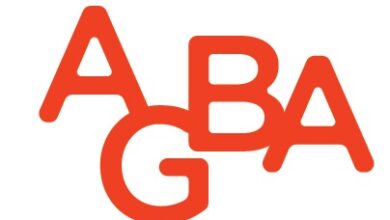Fintech finally starts to add up for investors

For all the excitement over artificial intelligence, I’d wager that most investors would struggle to identify many sectors where there is hard financial evidence of it helping businesses boost sales or improve margins.
But in fintech, the benefits are becoming plain to see. Reports emerged a few weeks back from Microsoft-backed OpenAI that its work for Klarna — the “buy now, pay later” group soon to float — had already yielded a $40mn improvement in Klarna’s profits this year.
About two-thirds of Klarna’s customer service interactions use chatbots, helping consumers resolve their issues in less than one-fifth of the time it used to take — whether customers love it is perhaps another question for another time. The upshot is the AI technology does the work of 700 of its 3,000 customer service jobs.
Some parts of the market have already woken up to the potential. After a dreadful few years where listed fintech businesses — and funds — were being knocked about by deeply bearish sentiment, things have been looking up.
Many individual fintech businesses, such as crypto platform Coinbase and online stockbroker Robinhood (which has just launched in the UK), have seen big share price increases — up 67 and 53 per cent respectively in the year to date.
Across the spectrum of listed fintech businesses globally, there’s been an impressive bounce over the past 12 months. The KBW Nasdaq Fintech index is up 31 per cent over the past year, compared with a return of 25 per cent for the broader S&P 500. This index is tracked by a UK-listed ETF from Invesco with the ticker FTEK LON, though there are other index trackers in the fintech space including one from Global X — ticker FING — and another from Xtrackers which is based on the MSCI Fintech innovation index — ticker XFSN.
FT Survey on UK investment
Have you found a great British bargain? Tell us the UK stocks that you think are worthy of including in your Isa – and why via a short survey
One repercussion is that we may see more fintechs list on stock markets over the next year. UK-listed venture capital fund Chrysalis — one of my favourite investments at the moment — has a stake of about 1.1 per cent in Klarna, on a net asset value of $11bn, whereas the rumoured IPO price is closer to $20bn. Another key holding for the investment trust is insuretech business WeFox, which is showing signs of rapid growth.
Of course, there are ever-present risks to the fintech renewal, not least that trad fi — old-fashioned banks to you and me — will wake up and get into the game, as JPMorgan has done with its Chase app. Another risk is that as tech is embraced and charges fall ever lower, companies will be in a race to low-margin hell, with competition pushing up customer acquisition costs.
But what once seemed like niche, add-on services and products are now becoming mainstream. Take another UK fintech leader Funding Circle, which lends to small and medium-sized businesses, and has recently moved beyond loans into more flexible lending products through its FlexiPay range.
It is now one of the biggest SME lenders in the UK and recently issued full-year numbers which showed solid progress. Total income was up 7 per cent on an annual basis and loan originations rose 12 per cent to £1.29bn in 2023. On a valuation basis, the shares are dirt cheap, with a market cap below its unrestricted cash of £170mn, on a price-to-net asset ratio of 0.6.
FlexiPay, which includes a credit line, a payments system and a credit card, is showing real evidence of growth, though it still runs at a loss. Its core market is interesting — the market for SME loans is about £84bn — but the wild card is the market for FlexiPay payments solutions, which is even bigger at £1.3tn.
The pay-off could be huge. My guess is Funding Circle will make a success of FlexiPay, sell its US business and then be snapped up by a much bigger traditional finance player looking for an entry into the UK SME finance market.
I’d also suggest looking at UK-listed fintech venture capital fund Augmentum, currently trading on a 37 per cent discount to its net asset value. The 24 companies in its portfolio are late-stage, established businesses such as SME digital bank Tide through to earlier-stage growth businesses like Onfido. Digital banking-led businesses comprise the biggest chunk — 32 per cent — of the portfolio with other key assets including Zopa (another UK fintech veteran) and BullionVault (a big physical gold investment platform).
One stat nicely sums up the potential for the underlying businesses: the top 10 holdings (which represent 82 per cent of portfolio value) increased revenue at an average of 74 per cent year-on-year.
My favourite is Onfido, an identity verification and fraud management platform, which represents 3.3 per cent of the fund’s net asset value. After its recent results, Onfido has entered exclusive discussions with a potential acquirer, US-based Entrust, which is focused on payments, identity and data security.
In my opinion this sector is an absolute winner, as the need for a standardised anti-money laundering and “know your customer” technology platform is mission-critical. Onfido has £42mn in net cash, on a market cap of £189mn.
I’ll finish with one out-and-out growth stock that shows what’s possible when the stars are aligned. US-listed digital bank Nubank — also known as Nu Holdings — suggests that when you get fintech products right you can make huge profits. Its shares are up 40 per cent in the year to date and currently trade on 57 times earnings, though that number drops to 27.9 times forecast earnings next year.
Nubank is a Latin American version of familiar UK names such as Starling and Monzo. It started in 2014 in Brazil, where it has a strong customer base — 53 per cent of the Brazilian population. Expanding elsewhere, it now has 95mn customers, up more than 27 per cent year-on-year. Crucially, 61 per cent of its customers use Nu as their primary banking account.
There’s big potential for cross-selling on digital fintech platforms. The average Nubank customer in Brazil has four products, worth a combined $27 a month in revenue. Its cost to acquire each customer is running at $7; and the cost to serve is less than $1 per active customer.
No wonder the revenue and profits are climbing fast — net income for fourth quarter of 2023 was $360mn, up 489 per cent year-on-year, and the annualised return on equity was 23 per cent. I’m not for one minute arguing Nubank is either cheap as a share or not without its risks as a Latin America champion, but its success shows that fintech can live up to the hype when it has the right business model.
David Stevenson is an active private investor. He has holdings in Chrysalis, Augmentum, Funding Circle and Nubank. Email: adventurous@ft.com. X: @advinvestor.



